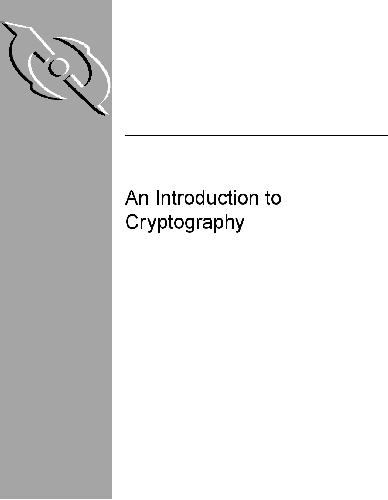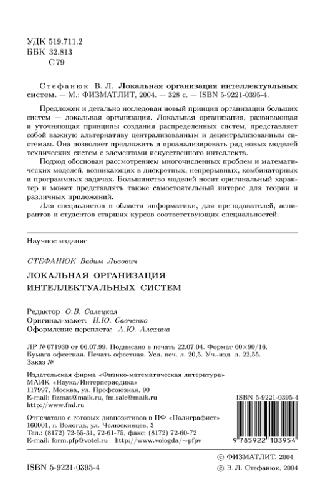Delfs H., Knebl H.0130614661, 0201633574, 0201924803, 0262041677
Due to the rapid growth of digital communication and electronic data exchange, information security has become a crucial issue in industry, business, and administration. Modern cryptography provides essential techniques for securing information and protecting data.In the first part, this book covers the key concepts of cryptography on an undergraduate level, from encryption and digital signatures to cryptographic protocols. Essential techniques are demonstrated in protocols for key exchange, user identification, electronic elections and digital cash. In the second part, more advanced topics are addressed, such as the bit security of one-way functions and computationally perfect pseudorandom bit generators. The security of cryptographic schemes is a central topic. Typical examples of provably secure encryption and signature schemes and their security proofs are given. Though particular attention is given to the mathematical foundations, no special background in mathematics is presumed. The necessary algebra, number theory and probability theory are included in the appendix. Each chapter closes with a collection of exercises.The second edition contains corrections, revisions and new material, including a complete description of the AES, an extended section on cryptographic hash functions, a new section on random oracle proofs, and a new section on public-key encryption schemes that are provably secure against adaptively-chosen-ciphertext attacks. |
Table of contents :
An Introduction to Cryptography……Page 1
How to use this guide……Page 5
Technical support……Page 6
Non-Technical and beginning technical books……Page 7
Advanced books……Page 8
Table of Contents……Page 9
What is cryptography?……Page 11
How does cryptography work?……Page 12
Caesar’s Cipher……Page 13
Public key cryptography……Page 14
How PGP works……Page 16
Keys……Page 17
Digital signatures……Page 18
Hash functions……Page 19
Digital certificates……Page 21
Checking validity……Page 23
Trust models……Page 24
Hierarchical Trust……Page 25
Levels of trust in PGP……Page 26
What is a passphrase?……Page 27
Technical details……Page 28
Why I wrote PGP……Page 29
The PGP symmetric algorithms……Page 33
About the random numbers used as session keys……Page 35
About the message digest……Page 36
How to protect public keys from tampering……Page 37
How does PGP keep track of which keys are valid?……Page 40
How to protect private keys from disclosure……Page 42
Beware of snake oil……Page 43
Compromised passphrase and private key……Page 48
Not Quite Deleted Files……Page 49
Viruses and Trojan horses……Page 50
Swap files or virtual memory……Page 51
Protecting against bogus timestamps……Page 52
Exposure on multi-user systems……Page 53
Cryptanalysis……Page 54
Glossary……Page 57
Elgamal 15……Page 77
public key tampering 49……Page 78
Zimmermann, Phil 29……Page 79 |







Reviews
There are no reviews yet.